Generator vs Inverter Generator – Which One Is Better For You?
In this helpful article, we have covered Generator vs. Inverter, and the main differences in terms of efficiency, weight, runtime, portability, cost, and reliability. We have also explained the inverter generator’s benefits in detail.
Being an energy, environment, and power expert, I have been through a lot of conventional and inverter generators over the past several years.
Whether you need a generator for camping and RV, as a backup power source or you are going to stay off the grid, I will explain the major difference between a conventional generator and an inverter to help you choose the right model.
What Does Inverter Generator Mean?
Conventional generators use a mechanical alternator to produce AC (alternating current) power that is ready to use in your AC appliances. An inverter generator also produces AC power but is converted into DC (Direct current) power.
Later, but with the use of a microprocessor, DC power inverts back into AC Power.
Why Inverter Generators Are The Best Portable Generators?
There are a ton of confusing terms tossed around in the generator market, which will confuse you if you are not familiar with them.
A lot of generators are labeled as “labeled as portable generators,” but there are many differences in size, technical aspects, fuel efficiency, and design among generator types.
Inverter generators are often considered the best among portable generators because they are easy to carry and they pack a lot of power in a tiny casing.
The electricity generated by inverter generators is more fuel-efficient, smoother, and quieter. The flow is also constant, and all of that is in a casing that is easily carried around.
Checkout our detailed guide about what is an inverter generator
How Many People Purchase Generators In The U.S.?
According to the Industry Size Forecast report, the portable generator market in 2017 was over USD 1.2 billion and is set to exceed the annual shipment of 1.5 million units by 2024.
Back in 2013, only 3% of people had standby generators, and 12% had portable generators. That value increased to 5% last year due to a surge in natural disasters like hurricanes, floods, and extreme colds which lead to power outages.
The generator market has seen tremendous growth because technology is improving to produce more budget-friendly, efficient, quieter, and compact generators to produce clean power.
Generator vs Inverter generator
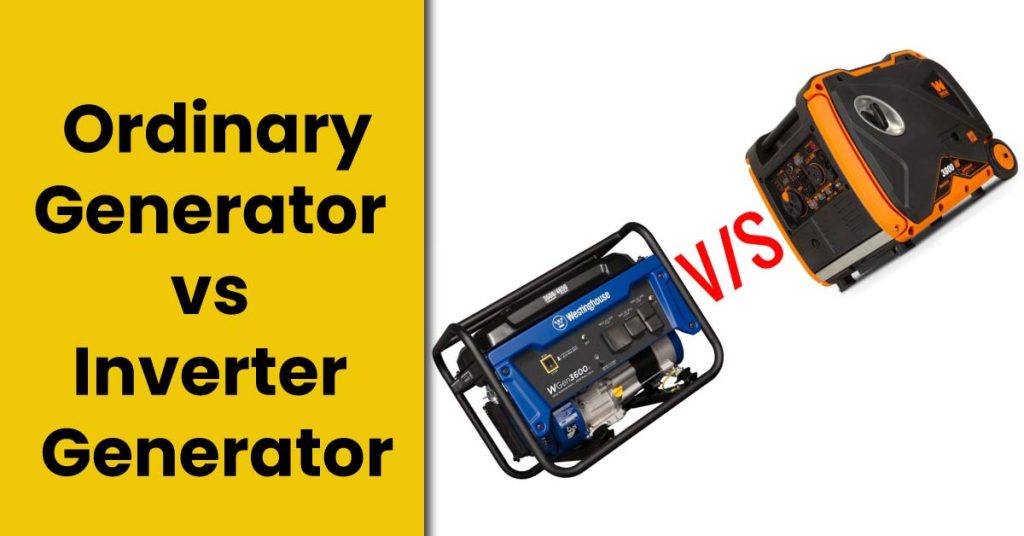
Most portable inverter generators are preferred by consumers who want to maintain their electricity during blackouts.
Inverter generators are lighter, quieter, and produce smoother power with no fluctuations, as we see in standard generators.
The standard generators operate at a constant speed that is non-adjustable. It causes unnecessary noise, fuel consumption, and exhaust output.
Inverter generators adjust their speed based on the power requirement.
Conventional Portable Generator:
It can run on more than one type of fuel, and it is meant to run 3600RPM to generator 120V and a frequency of 60 hertz.
However, the main problem with these portable conventional generators is that they cannot maintain a constant 3600 RPM speed at 60 hertz which causes fluctuations.
These fluctuations are called harmonic distortion. These harmonic distortions can cause harm to sensitive devices like laptops, cellphones, and cameras because these devices require clean energy.
Harmonic distortion of less than 4% is considered excellent. Not maintaining a constant 3600 rpm causes so much noise.
Conventional portable generators can produce as much as 10000 watts of power; the bigger the fuel tank, the more power.
Inverter Generator:
It also produces an output of 120V at 60 hertz, and the flow of current is much more stable and continuous.
In other words, the harmonic distortion is significantly less than in conventional generators. That is why inverter generators are known for producing clean power.
Inverter Generator vs Generator
| Conventional generator | Inverter Generator |
|---|---|
| Produces AC power | Produces DC, then DC back to more stable AC |
| Produces more power depending on the size of the fuel tank and mechanical differences. Not as fuel-efficient. Tends to be bulkier. | More energy efficient. Automatically adjust to the load. Needs less fuel to produce more energy. |
| Portable conventional generators can reach over 10,000 watts | Average power production of 1200 watts to 4000 watts. Here is the guide about what appliances can a 4000 watts generator run |
| Not portable mostly, but can be portable with the help of a handle and wheels. | Mostly portable. Commonly weighs between 40 and 60 pounds. |
| Produces more noise. | Produces less noise despite producing the same amount of power as a conventional portable generator. |
| Don’t offer parallel connections because they are already powerful. | Offers a parallel connection. Two separate generators of the same brand can be connected to double the power. |
| It is not easier to find a conventional portable generator that is EPA and CARB-compliant and produces fewer greenhouse gases. | It is not easy to find a conventional portable generator that is EPA and CARB-compliant and produces fewer greenhouse gases. |
| Cheaper to purchase if you need more power. | A bit expensive compared to conventional. It is a newer technology and these units are quieter, produce a smoother and constant flow of power, are portable, have less harmonic distortion, and are energy efficient. |
When To Choose An Inverter Generator?
Inverter generators are more suitable for outdoor activities like camping, RV, and occasional use.
It is suitable when you don’t need a lot of power but you need something clean and reliable. It is also suitable when you need to save electricity.
People mostly purchase inverter generators when they need something portable. It is not for you when you need a huge amount of power like 7000 to 10000+ watts.
When To Choose A Conventional Portable Generator?
A conventional generator can produce a huge amount of energy despite being heavy, bulky, and noisy (not all).
People mostly purchase these generators as a backup power source to run the entire house in case of any emergency, or power outage.
Nowadays manufacturers are trying to make these generators compact, portable, and quieter to increase their sale value.
Generator VS Inverter – Which One Is Better?
Depends on the user. An inverter generator might be a better option for campers and RV users, someone who needs a portable unit with clean energy, and a conventional portable generator works best as a backup for a home or a work site when a lot of power is required.
So it boils down to the choice of the user. You need to think about the power you need think about your power consumption and how much electricity you need.
Checkout the comparison of Solar and Gas Generator
Top 3 Best Portable Inverter Generators
1. Honda EU2200i 2200 watt Inverter Generator
FEATURES & SPECS
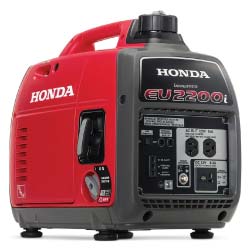
2. WEN 56200i 2000W Inverter Generator
FEATURES & SPECS
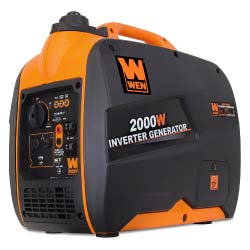
3. Champion Power 200987 4500W RV Ready Portable Generator
FEATURES & SPECS
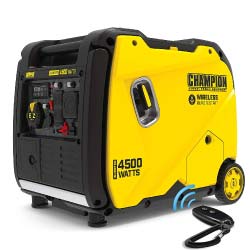
Top 3 Best Convectional Generators
1. DuroMax XP12000EH Dual-Fuel 10000-Watt Generator
FEATURES & SPECS
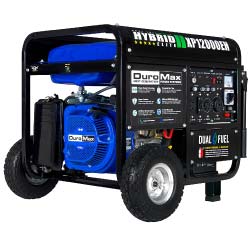
2. Durostar DS10000E 10000 Watt Generator
FEATURES & SPECS
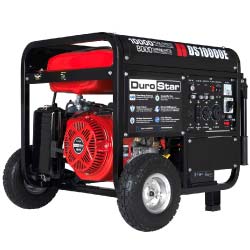
3. WEN DF1100T 11000 Watt Dual-Fuel Generator
FEATURES & SPECS
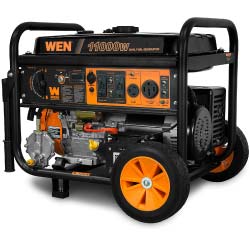

Alex Black is a seasoned electrical engineer with a remarkable 8-year track record specializing in appliances, generators, and transfer switches. With extensive hands-on experience in the field, Alex possesses a deep understanding of electrical systems and their intricate workings. Throughout their career, Alex has consistently demonstrated expertise in designing, troubleshooting, and maintaining various electrical appliances.
